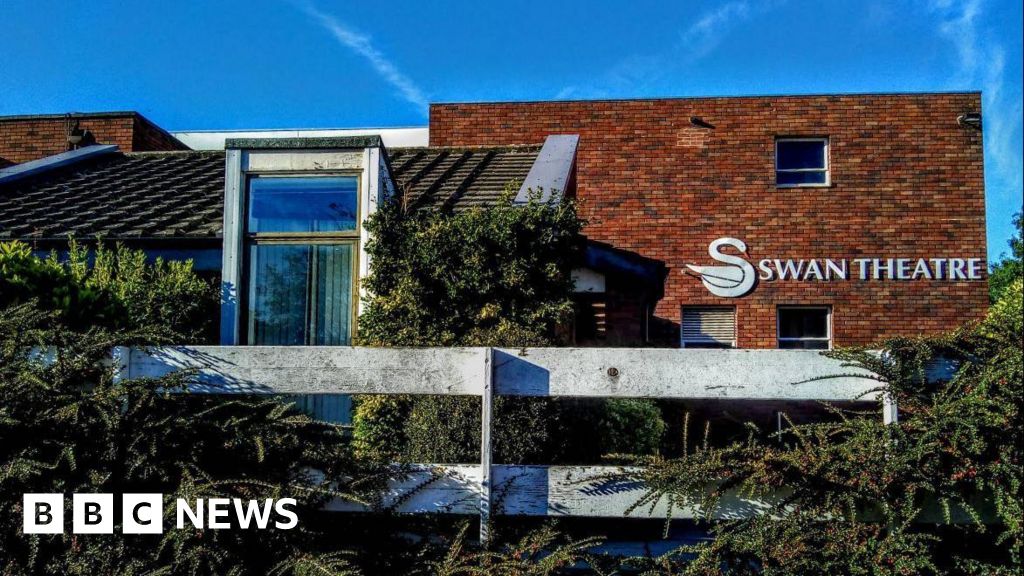- Middle East
Ukraine says it struck a Russian airbase as Russia sent hundreds of drones into Ukrai…
时间:2010-12-5 17:23:32 作者:Trends 来源:Jobs 查看: 评论:0内容摘要:The government in MarchThe government in March
Although 80% of local people backed Trump last November, that support doesn't appear to stop people opposing one of his key crypto goals.The Trump administration is not planning to do away with all regulations around crypto mining - but it is ready to actively help companies open power plants next to the mines.

In an interview with Bitcoin Magazine in April, commerce secretary Howard Lutnick said: "We're going to make it so that if you want to mine Bitcoin, and you find the right place to do it, you can build your own power plant next to it," going on to argue that such projects would stop "these stories about 'You're taking too much power and now the cost of operating my refrigerator is higher'.""The next generation of miners in America will be able to control their destiny, control the cost of power, and I think that is going to turbocharge Bitcoin mining in America," Lutnick told the magazine.According to Zack Shapiro, head of policy at the Bitcoin Policy Institute, a US think tank that researches emerging monetary networks, that process has already begun. "There are states that are passing laws specifically prohibiting municipalities from banning Bitcoin mines," he says. "It's a mechanism by which mining companies can fight back."

And the nature of Bitcoin mining means that, if it meets resistance, it can quickly move on to somewhere more favourable.When Colin Read tackled the mines in Plattsburgh, he saw how easily they could change location.

"This industry is really footloose," he said. "When we told these companies they couldn't have more power without going through hoops, they packed up and went to a community where they didn't have such strict requirements."
Local opposition is not Trump's only challenge. Could the sea, for example, be a better location for Bitcoin mining?When gold hit its previous record in January 1980, the Soviet Union had just invaded Afghanistan. Oil prices were surging, driving up inflation in developed economies, and investors were looking to protect their wealth. The price also rose sharply in the aftermath of the global financial crisis, leading to another peak in 2011.
The recent increases appear to owe a great deal to the way markets have responded to the confusion triggered by the Trump administration.The most recent surge came after US President Donald Trump launched an online attack on Jerome Powell, the chair of the Federal Reserve. Calling for immediate interest rate cuts, he described Mr Powell as a "major loser" for failing to reduce the cost of borrowing quickly enough.
His comments were interpreted by some as an attack on the independence of the US central bank. Share markets fell, as did the value of the dollar compared to other major currencies – and gold hit its most recent record.But gold's recent strength is not wholly explained by the Trump factor.
- 最近更新
- 2025-07-07 08:37:45Serbia's protesting students rally nationwide, putting pressure on Vucic to call early elections
- 2025-07-07 08:37:45Climate change is boosting the risk of sleep apnea
- 2025-07-07 08:37:45Alcaraz gives point to Shelton on racket fling
- 2025-07-07 08:37:45U.S. strikes on Iranian nuclear sites show no sign of widespread environmental impact
- 2025-07-07 08:37:45Authorities determine the cause of death of a man whose burned body was found on Stone Mountain
- 2025-07-07 08:37:45Federal judge declines to order Trump officials to recover deleted Signal messages
- 2025-07-07 08:37:45Pro-Trump media figures split over the U.S. role in the Israel-Iran conflict
- 2025-07-07 08:37:45As Israel recovers the bodies of three more hostages, how many are still in Gaza?
- 热门排行
- 2025-07-07 08:37:45Red flags to watch out for before choosing a financial advisor
- 2025-07-07 08:37:45Death toll reaches at least 200 in Nigerian town submerged in floods
- 2025-07-07 08:37:45translate to lower insurance premiums
- 2025-07-07 08:37:45Authorities determine the cause of death of a man whose burned body was found on Stone Mountain
- 2025-07-07 08:37:45AOLThis Black & Decker stick vacuum, down to $74, gives Dyson a run for its money
- 2025-07-07 08:37:45Ser católico en una universidad secular puede ser un desafío; otros lo ven como una bendición
- 2025-07-07 08:37:45Pistachio Ice Cream Sandwiches with Walnut Brownies
- 2025-07-07 08:37:45Authorities determine the cause of death of a man whose burned body was found on Stone Mountain
- 友情链接
- Amid US-Pakistan thaw, two key challenges: Iran and China Lake Chad Basin: Violence and displacement Kenya police officer arrested over blogger’s death in custody African manhood is broken – and it’s costing women their lives Al Jazeera Centre for Public Liberties & Human Rights US strikes Iran, what comes next? Key players tangle at UNSC at ‘perilous turn’ of US-Israel-Iran conflict Are commercial interests driving Uganda’s military operations in DR Congo? US attacks Iran: How Trump rejoined ‘team’ Netanyahu Key players tangle at UNSC at ‘perilous turn’ of US-Israel-Iran conflict Markram and Bavuma put South Africa on verge of WTC win against Australia UN warns of starvation in ‘hunger hotspots’ The Netherlands returns 119 stolen sculptures to Nigeria Pakistanis flee Iran amid Israel-Iran war border closure Report: Two-time NBA Finals MVP Kevin Durant traded to Houston Rockets Lake Chad Basin: Violence and displacement Thunder beat Pacers in Game 7 to bring first NBA crown to Oklahoma City US strikes Iran in ‘Operation Midnight Hammer’ Iran warns US of consequences after strikes, says Trump betrayed his voters US strikes Iran, what comes next? US lawmakers condemn Trump for ‘unconstitutional’ attack on Iran US attacks Iran: How Trump rejoined ‘team’ Netanyahu US strikes Iran in ‘Operation Midnight Hammer’ The woman raising 98 children with disabilities in Uganda Sounds familiar: Was this said about Iraq in 2003, or Iran in 2025? Senior Trump officials say US attacks on Iran ‘not about regime change’ Report: Two-time NBA Finals MVP Kevin Durant traded to Houston Rockets Mahmoud Khalil leads pro-Palestine rally in New York US lawmakers condemn Trump for ‘unconstitutional’ attack on Iran Devi Khadka: The woman leading the fight against wartime sexual violence
